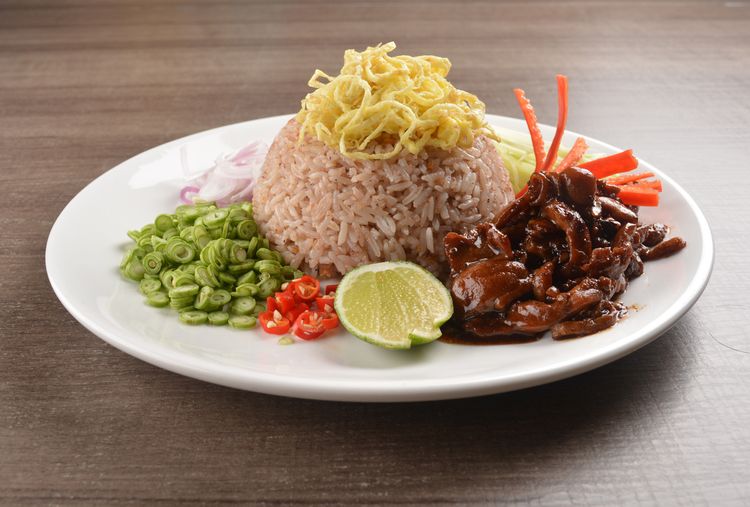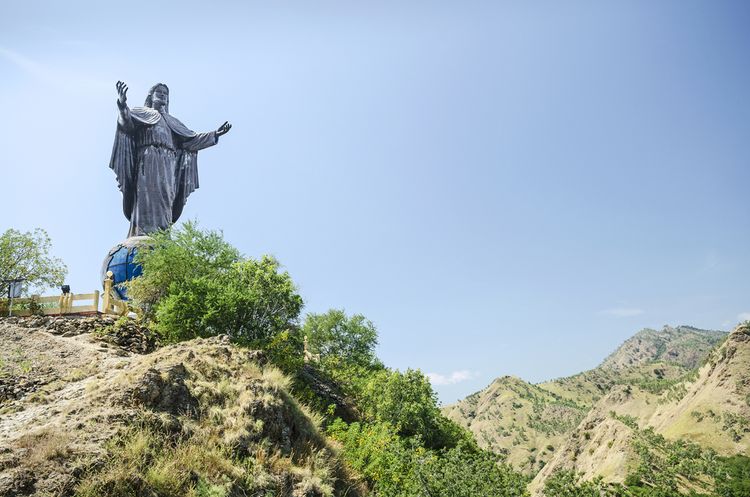East Timor Travel Tips and Information
Official Name
Democratic Republic of East Timor
Capital
Dili
Population
Country Code
Approximately 1.13 million
TL
Country Code (international calls)
+670
The flight time to East Timor is approximately ---- hours. Check the climate, currency, religion, manners, other information of East Timor below. Wishing you pleasant travels to East Timor.
East Timor is a republic located in Southeast Asia, comprising the eastern part of Timor Island, along with Atauro Island, Jaco Island, and the exclave of Oecussi. It gained independence from Indonesian rule as a result of a United Nations-led referendum in 1999. Independence was achieved on May 20, 2002, making it the first independent country of the 21st century.
Local Climate / Weather
1.Climate Overview East Timor has a tropical climate, characterized by a distinct wet and dry season. The wet season typically runs from November to April, bringing heavy rainfall and high humidity, while the dry season spans from May to October, offering more moderate, dry weather and clearer skies. 2. Seasonal Travel Advice For the best travel experience, visiting East Timor during the dry season (May to October) is recommended, as this period provides ideal conditions for outdoor activities such as hiking and beach visits. Travelers should avoid the peak of the wet season when heavy rains may disrupt travel plans and access to some regions. 3. Major Events and Festivals Key cultural events in East Timor include Independence Day on May 20, which is celebrated with parades, traditional performances, and public festivities. Another significant celebration is the Dili Marathon, typically held in June or July, drawing participants and spectators from both the local and international community.
Currency & Tipping
Currency
The official currency of East Timor is the United States Dollar (USD), which is widely accepted throughout the country. While there are also local coins, most transactions are conducted in USD, making it convenient for travelers. It's advisable to carry small denominations for everyday purchases, as larger bills may not always be accepted.
Tipping
Tipping in East Timor is appreciated but not mandatory, with the common practice being to leave around 10% of the bill in restaurants and cafes if service is not included. In hotels, it is customary to tip bellhops and housekeeping staff, generally offering a small amount based on the level of service received. While tips are not expected, they are a nice way to show appreciation for good service.
Useful Travel Information

Voltage & Electrical Outlets
In East Timor, the standard voltage is 220V with a frequency of 50Hz, which is similar to many countries worldwide. Travelers should check if their devices are compatible; if not, a voltage converter may be necessary. The power outlets are primarily of types C and E, so a universal adapter is recommended to ensure compatibility.

Internet Connectivity
Internet access in East Timor is available through various service providers, with most urban areas offering Wi-Fi in hotels, cafes, and restaurants. However, the connection may not be as fast or reliable as in more developed countries, so it's wise to plan for potential outages or slow speeds. Local SIM cards can be purchased for mobile data, which is a practical option for travelers needing connectivity on the go.
Water for Consumption (Drinking Water)
Travelers are advised to drink bottled water in East Timor, as tap water may not be safe for consumption. Bottled water is widely available at stores and supermarkets throughout the country. It's also important to avoid ice in drinks unless you can confirm that it's made from purified water
Culture, Religion & Social Etiquette
Culture
East Timor's culture is a rich tapestry of indigenous practices and Portuguese influences, evident in its traditional dances, music, and art. Celebrations like Kris Mass (Christmas) and Independence Day highlight the nation's deep-rooted customs and the importance of community and family.
Religion
The predominant religion in East Timor is Roman Catholicism, which plays a significant role in shaping the country’s culture and social norms. Many traditional ceremonies and public holidays are intertwined with religious observances, reflecting the strong connection between faith and daily life.
Social Etiquette
In East Timor, greetings are an essential part of social interactions, and it is customary to greet elders first and show respect through body language. You will find that a warm smile, a firm handshake, and using titles of respect, such as "Senhor" or "Senhora," are important manners to observe.
Food Culture
East Timor's cuisine offers a delightful blend of indigenous flavors and Portuguese influences, showcasing dishes like bife (beef stew) and ikan (fish) prepared with local spices. Street food is a vibrant part of the food culture, with popular options including fried banana, samosas, and sweet potato fritters, often enjoyed by locals and travelers alike. For an authentic dining experience, recommended local restaurants such as Restaurante Cazbar and Cafe Timor provide a taste of traditional dishes while also offering a warm atmosphere.
Major Tourist Attractions & UNESCO World Heritage Sites
Major Tourist Attractions
East Timor is home to stunning tourist destinations and cultural treasures, such as the beautiful Cristo Rei of Dili, a massive statue that offers panoramic views of the coastline. Another must-visit site is Atauro Island, known for its pristine beaches and vibrant coral reefs, perfect for snorkeling and diving activities. Nino Konis Santana National Park is also a highlight, where visitors can explore diverse ecosystems and hike through scenic landscapes.
UNESCO World Heritage Sites
Travelers should not miss the UNESCO World Heritage Site of Sikama Island, where they can enjoy rich marine biodiversity and cultural experiences. To make the most of your visit, engaging in local tours and guided hikes can provide deeper insights into the history and natural beauty of this captivating nation.
Travel FAQs
What is the best season to visit East Timor?
The best season to visit East Timor is during the dry season, which typically runs from June to October. The winter months bring the wet season, so travelers should be cautious during that time.
Can you communicate in English in East Timor?
While English is not an official language, it may be spoken in some hotels and tourist areas.
What are the major cities in East Timor?
The capital city of East Timor is Dili, located in the northwest. It has historically served as the center of the island of Timor.
Which airport is the most popular for flying to East Timor?
The most popular airport for travelers is Presidente Nicolau Lobato International Airport, located in the capital city of Dili.
What is the safety situation in East Timor? What precautions should be taken?
East Timor has limited transportation options, so travel within the country often relies on cars. The driving habits can be quite dangerous, with frequent traffic violations, so caution is advised. Additionally, taxi robberies can occur, so it is safer to travel in groups and avoid using taxis late at night to reduce the risk of crime.




